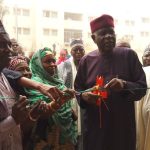The Centre for Information Technology and Development (CITAD) has welcomed the Nigerian Communications Commission’s (NCC) new licensing framework but expressed concern over the lack of explicit inclusion of community networks.
The framework, announced at a stakeholders forum on July 17 in Abuja by Barrister Rimini Makama on behalf of NCC Executive Vice Chairman Dr. Aminu Wadia, includes three elements: Proof of Concept Pilots, Regulatory Sandbox, and Interim Service Authorization.
CITAD said the Interim Service Authorization could provide an opportunity for licensing community networks—nonprofit efforts focused on providing internet access in underserved areas.
CITAD Executive Director Malam Y.Z. Ya’u said the new policy signals a shift, but stressed the need for clearer recognition of community networks.
“For over five years, we at CITAD have championed the need for a distinct license class for community networks to address the persistent connectivity isolation faced by millions of Nigerians in unserved and underserved areas,” Ya’u said. “We see this new framework as a potential opening, but the lack of explicit reference to community networks and the exclusion of non-profits—who are the main drivers of such initiatives—are key concerns.”
CITAD noted that more than 90 clusters of communities, representing over 27 million people, still lack internet access. The organization said these areas are neglected because commercial providers see no profit in serving them.
“In such settings, it is only community-led efforts that can close the connectivity gap. The new framework must accommodate and support such initiatives if we are serious about achieving digital inclusion and transformation,” Ya’u said.
CITAD referenced its past engagements with NCC and other stakeholders, including a meeting in November 2024 co-hosted with the Association for Progressive Communication (APC) and supported by the Foreign and Commonwealth Development Office (FCDO).
That event led to the creation of a National Advisory Committee on Community Networks and a national strategy for their adoption.
In June, APC and NCC held a policy workshop, also supported by the FCDO, to explore integrating community networks into Nigeria’s telecom licensing structure.
“We commend the NCC Executive Vice Chairman and the entire Commission for taking this bold step. But we also urge them to go a step further—to provide clear guidance and formal recognition for community networks,” Ya’u said. “Without this, the framework risks missing its potential to empower the very communities most in need of digital access.”
CITAD called on the NCC to align its regulatory approach with the realities faced by underserved communities, stressing that access to the internet is now a necessity.






